 Citizen Systems Europe has a long, successful history as a manufacturer and supplier of high performance label, barcode, portable and point-of-sale printers for industrial, retail, healthcare and mobile applications. It operates throughout the EMEA region, where its products are sold and supported in each country by a local network of specialised partners.
Citizen Systems Europe has a long, successful history as a manufacturer and supplier of high performance label, barcode, portable and point-of-sale printers for industrial, retail, healthcare and mobile applications. It operates throughout the EMEA region, where its products are sold and supported in each country by a local network of specialised partners.
Citizen Systems Europe is a wholly owned subsidiary of Citizen Systems Japan and part of the Citizen group of companies, a global organisation that manufactures products ranging from its world-famous Eco-Drive watches, calculators, mini-printers and industrial printing systems to machine tools, quartz oscillators, LEDs and other electronic components.
Backed by their outstanding quality heritage, in 2011 Citizen Systems Europe stand tall as one of the new generation of printer manufacturers that can supply all product ranges “From Post to Parcel, Point-Of-Sales to Portable.” Mark Beauchamp, European Marketing Manager, Citizen Systems Europe, spoke to Warehouse & Logistics News.
Warehouse & Logistics News – First of all Mark, what does your day to day role involve as European Marketing Manager?
My role covers product marketing and marketing communications. Wearing my product manager hat, I often deal with end users, from people with one machine to larger organisations. We don’t sell directly to end users, but I’m happy to talk to customers and work with the channels as appropriate. On the marketing side, most people out there know about us. These products are quite technical, and you need to be quite clued up, more than with typical FMCG marketing. Even less technically minded customers ask in-depth questions about barcodes and so on.
WLN – How important are warehouse and logistics operations to your business?
Couriers, logistics operations and warehouses are a major market for us. Interestingly, we often arrive at these places and find our products are there already through our distributors, or they’ve seen them in action at another company and decided to buy one.
WLN – Where are you based in this country? Where do you do your manufacturing?
We have a UK office near Heathrow Airport. We had a UK factory in Scunthorpe up to 2001 but now we manufacture products for Europe in the Far East. Citizen Systems Europe is based on the concept of Europe being one big single territory, and we’ve always offered best of breed products across the market. Unlike some multinationals operating in country silos, we take a view across the region.
WLN – What specific printers do you supply that are best suited to the European market?
We have one particular machine, the CL-S521, previously known as the CLP-521, which was designed specifically for Europe. It’s an industrial desktop printer with a strong metal mechanism. Our parent company asked for our ideas and input, down to the last nut and bolt. Our design happens in Japan and production is in our factory in Jiangmen, China, which we own and control, giving us the ability to update models and systems quickly.
WLN – Who are your distributors to this sector?
Our distributor partners in the courier and logistics sector are very strong, especially Newbury Data in Cheshire, who have worked with us for a long time and know the market well. Our warehousing business goes through other distributors – Codered and Jarltech: it’s a different style of buying, with larger operations and bigger throughput. Warehouses tend to buy big, heavy duty printers but in the courier sector they buy lots of smaller office-style machines.
WLN – In your view, what characterises the UK as a marketplace for your printers? How does the UK compare with other countries?
To generalise drastically, UK customers are prepared to pay for better quality, while Germans expect durability. European ‘W&L’ users as a group have the buying power to drive the market on price, but are aware of the need for quality and can be sold on the advantages. Western Europe is a mature market for these products. Much of the variation in attitudes in individual countries comes down to different local ways of trading. In certain countries people will accept an asking price, but elsewhere they are much more willing to barter. With corporate customers there’s not so much difference across Europe, but at local level having local representation and languages remains key.
WLN – What attributes do warehouse and logistics operations tend to look for in their printers?
Ruggedness is primary: once you have your printer you want it to run forever. We offer two product ranges, industrial and desktop. In both cases, the power supply is in the printer so it doesn’t get broken. Ease of changing media and ribbons is key: if that’s simple, the machine keeps going longer, and if you can avoid servicing you mitigate some of the problems.
WLN – What specific barcode printers do you offer?
Our CL-S521 is more of a courier printer, and has an aesthetic plastic case. Our CL-S700 tends to be found in warehouses and is a bigger version of the CL-S521, high speed and heavy duty with a metal case. They share common engineering – the mother board in the printer is the same – and the same core processing. All our printers, portable and fixed, can print both barcodes and labels and interchange between them as required.
WLN – Talk us through your portable printer offering.
We’ve offered portables for many years. In the 1990s we had A4 portable printers, long before they were the workplace standard. We’ve now migrated to 2”, 3” and 4” variants using thermal paper, in much higher quality than before. We introduced some new portables in September 2010. The CMP-30L portable label printer is winning a new audience, ideal for situations where time is money and there’s less chance of labelling the wrong pallet. In terms of portable versus fixed, many people like to put our CL-S521’s on trolleys and move them around so they work like portables!
It’s not just portable printers that are improving; so are the labels on offer. We’re working with Maxstick to develop linerless and restickable media, a new technology which will take time to convince people to accept in portable solutions and find their own applications for it.
WLN – What networks do your printers run on?
All our portables are wireless, working on both Bluetooth and Wifi. Our desk tops and industrials have Ethernet and wireless options and run on Wifi, but don’t need to run on Bluetooth yet.
WLN – Are your printers easy to operate and reload? What training do staff need?
Our printers are probably the easiest to operate in the industry. They’re designed to load and close easily, which has been our USP for many years. Users need minimal training: we make it obvious how you use our printers, so people can’t screw them up.
WLN – How rugged are your printers?
Our desktop machines have aesthetically appealing plastic casings, and are designed for the office end of the market, but they’re certainly not soft: with the CL-S521 desktop you can pick it up by the print head, wave it around and it won’t break. Our bigger industrial machines are extremely strong, with steel casings, which is one reason we sell so many. In the recession people have been refurbishing our machines and buying spare parts, proving their strength and durability.
WLN – Can your printers work in low temperatures like cold stores?
Being able to print in minimum temperatures is down to the paper, which may be too chilled. In supercold and chilled warehouses you often have pre-heating mats inside the machine: the problem’s not the printer, it’s the media you use.
WLN – Do you supply printers adapted for use in dusty or damp environments?
Dust and damp aren’t good for printers, and in these conditions the casing should be closed as far as possible. In such environments resellers generally modify the printers, and we support them with protective housings. For example, on the back of our printers there’s always a slot to put in media externally and this is closed by the protective housing.
WLN – Do your printers send an alarm message when they malfunction?
We have systems in our printers to give early warning of systems failing, and add in features to check print head failure or if printers are networked, send failure messages back. If the printer is printing critical bar codes we can set it to report critical failures.
WLN – What sizes and widths of labels do your printers work with?
The predominant width is 4”, which is 90% of the market, but they can print down to 1/2” wide. We also have machines going up to 9” wide. Our desktop can produce regular labels and wristbands down to 1/2”.
WLN – What kinds of volume throughput of printed labels can your printers handle?
Our desktops handle as much throughput as industrial machines. The sensible, logical maximum amount for any printer is a roll of labels a day: beyond that you really need to review your print requirements, or you’ll be changing rolls all day. On our bigger machines you can run through a roll every 45 minutes, but there’s a point where it becomes impractical to work like that.
WLN – Do you supply labels, ribbons and other consumables as well?
We supply ribbons and some specialist labels: labels are bought cut to the size needed by the individual end user. We also supply ribbons for all our machines. The three ribbon types in common use are wax; resin, which is chemical- and abrasive-resistant; and in between the two a wax/resin blend. Which one you choose comes down to cost. Outside the ‘w&l’ sector we also produce specialist media for jewellery tags, personalised banners for florists and car number plates. With a little imagination, barcode printers can be used highly creatively!
WLN – How often do your printers need maintenance?
You should clean the printer every time you change a roll of labels but the reality is it happens far less often. Our printers come with cleaning pens: as previously mentioned, the biggest problem generally isn’t the printer, it’s the media you use. We recommend maintenance every time a machine gets through 5,000 metres of labels: if you get dirt build up before that, you need more maintenance.
WLN – How long do your machines last?
We warranty our print heads to 50 kilometres. With sensible use and regular servicing, printers should easily last for 1,000 kilometres of print, but some lightly used machines may never even reach 100km.
WLN – Do you provide the maintenance and service or does someone else?
We offer third party maintenance contracts, and customers can also get these through our distributors. We provide extended warranties through our distributors, and train third party maintenance contractors so they have Citizen-approved engineers.
WLN – In a crowded industrial printer market, why buy a printer solution from Citizen?
Reliability is key: even our competitors admit this is the main reason people use our machines. They are strong, reliable and easy to use and leave the user feeling happy, with no support problems or other headaches.
WLN – Can you name any of your customers in the warehouse and logistics sector?
In the courier and logistics market our customers include Yodel, CityLink, TNT and Geopost. One of the parcel carriers was doing warehousing for our competitors and was told they couldn’t have our printers, even though they preferred them! We also supply printers to TNT, Dachser, DPD and other major companies in Europe. You can find some case studies on www.citizen-europe.com
WLN – What effect has the recession had on demand for your printers in the UK?
In our view, the UK warehouse & logistics industry hit recession in March/April 2008, six months before the credit crunch. New printer purchases fell with the rocketing oil prices, but also picked up earlier, in March/April 2010. Incidentally I understand the rest of the industry didn’t pick up again as quickly as we did – for whatever reason!
WLN – Finally, where do you see Citizen Systems Europe and your printers business going from here?
It comes back to our original proposition, “From Post to Parcel, Point-Of-Sales to Portable.” We have a good spread of products and win out in terms of performance and functionality across the spectrum. We have a total portfolio, from warehouse to courier, and back office to front of shop. We’re a one-stop shop and are well placed to pick up on the demand for total solutions.
Being green is a bandwagon, but we don’t just pay lip service. We recognise the importance of eco friendly technology: everyone focuses on power consumption, but the remaining 75% of the problem is transporting new products to the end user and disposing of them at the end of their life. We put our production in Citizen-controlled factories and monitor the supply chain. We also pack our products sensibly to arrive in a good state and entrust final disposal to WEEE-registered companies so they do the honourable thing.
Looking ahead it’s good to see markets recovering, and people investing in new and better equipment and using the technology more effectively to empower their workforces. There are various high profile projects coming up such as the London Olympics, which require the kind of printer technology that we provide. But in terms of continued demand for and usage of our equipment the warehouse, logistics and courier market as a whole are much more interested in our products and have a lasting need for them, and we remain committed to serving them as our priority.
Citizen Systems Europe
Tel: 020 8893 1900




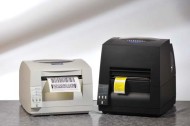
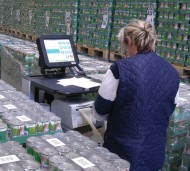

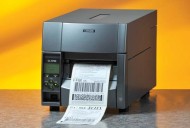
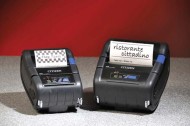
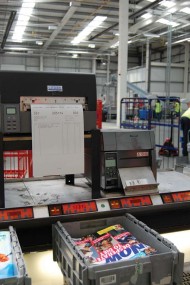
Comments are closed.